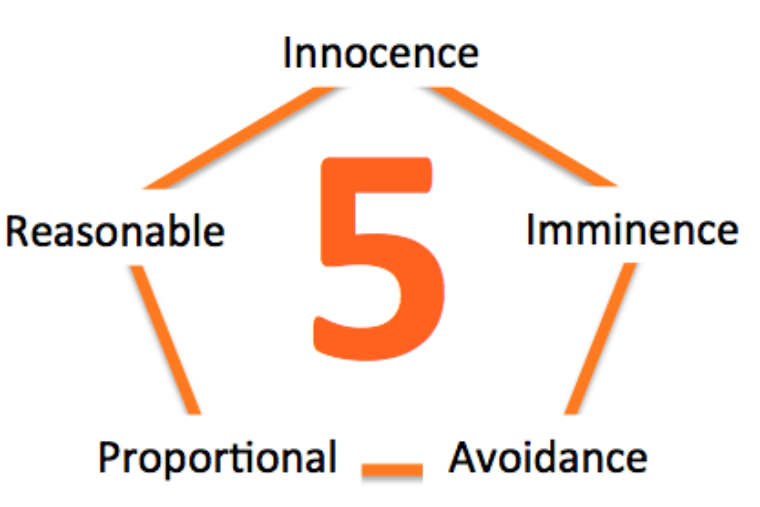American society recognizes that there are certain circumstances in which the use of force, even deadly force, against another person may be necessary and justified. When this is so, the use of that force is deemed not a crime, and even if the state can prove beyond a reasonable doubt each and every element of, say, murder, the fact that the act was done in lawful self-defense requires an acquittal.
This is, really, a remarkable degree of autonomous power held by the individual citizen. A person who reasonably believes that they are being threatened with imminent and otherwise unavoidable death or grave bodily harm may in that instant take the life of their attacker, with absolutely no requirement for prior permission from any governmental authority. In contrast, think about how long it usually takes the government to execute someone who has been proven guilty of a capital crime with all due process of law.
Where the government does enter the picture in a self-defense scenario, of course, is after the fact. Examining events in hindsight they seek to determine whether the use of force did, in fact, adhere to all five legal principles of self-defense. If they can prove, beyond a reasonable doubt, that any single one of those principles has been violated, the defendant’s right to claim self defense disappears.
That said, let’s briefly discuss each of the five principles of the law of self-defense: Innocence, Imminence, Proportionality, Avoidance, and Reasonableness.
For the prosecution to win on the issue of self-defense it must disprove, using the facts in evidence and beyond a reasonable doubt. the truth of ANY ONE or more of these fundamental principles to be false.
by Andrew Branca



